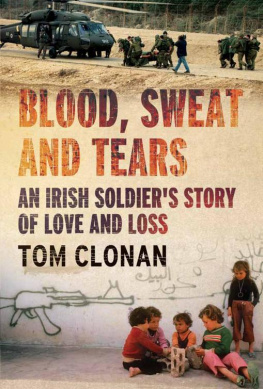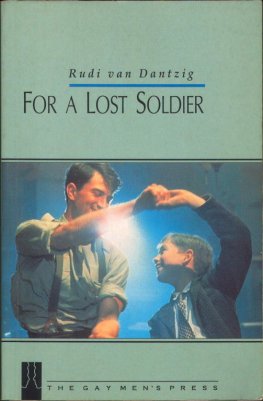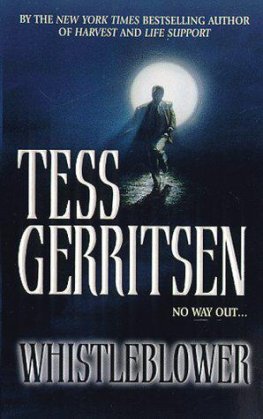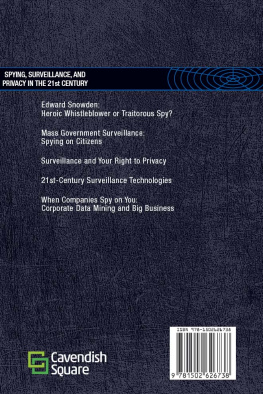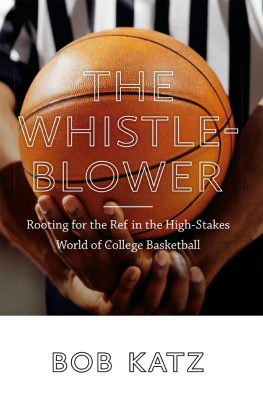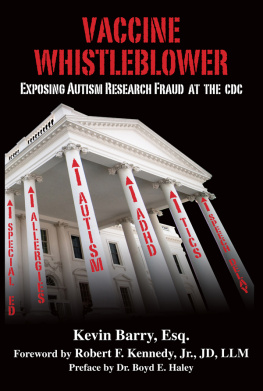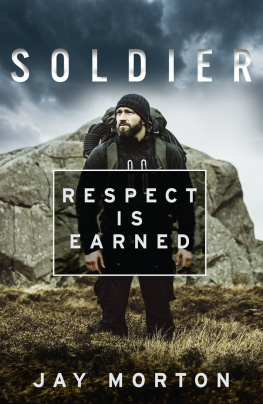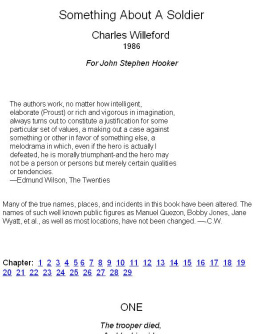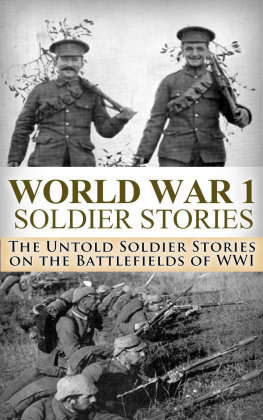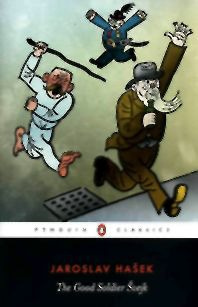I wish to thank Aideen, Theo Dorgan, Denis OBrien, Una Murray, Benji Bennett and Rosie Head for their mentoring, invaluable advice and sharp editorial skills. I am also very grateful to Sen OKeeffe and the team at Liberties Press for their support and friendship.
I would like to thank the men and women of the Irish Defence Forces, with whom I am proud to have served at home and abroad. The Irish armed forces mentored me, educated me and above all, taught me to fight. I am grateful for these gifts they have proved to be essential life skills. I wish to thank those journalists who allowed me to tell my story as a whistleblower. A big thank you also to my many colleagues at the Dublin Institute of Technology and the Irish Times for their collegiality and kindness. As a researcher and a journalist, I wish to extend a special thanks to all of those men and women who have spoken to me over the years. Thank you for sharing your most intimate stories and experiences with me. A final thanks for the remarkable journalists, diplomatic staff, politicians and spies that I have met over the last decade. The spies know who they are.
This book is a memoir. To paraphrase another soldier, Erich Maria Remarque, this book is neither an accusation nor a confession, and least of all an adventure. For this is a book about conflict. It deals with the intensely personal conflict of a grieving parent. It describes the conflict between the individual citizen and those who wield power. It is an exploration of global conflict. It is a retelling of my experiences as an army officer, whistleblower, journalist and father. The book spans the period from 1996 to 2009. For the author, these dates bracket a sequence of formative, traumatic, life-changing events.
The chronology commences as the Balkan Wars of the 1990s draw to a close. The book opens with my experiences as an international election monitor for the Organisation for Security Co-Operation in Europe, (OSCE) in Bosnia Herzegovina during the crucial autumn elections of 1996. These elections were a critical provision of the Dayton Accords, and for many signaled the end of open hostilities in Bosnia. The narrative continues with my doctoral research as a serving army officer into women soldiers in the Irish armed forces. This research revealed unacceptable levels of bullying, sexual harassment and sexual assault of female personnel within the Irish military. The memoir also deals with my transition from soldier to whistleblower and journalist. The book charts some of my experiences as a journalist from the beginning of the US Global War on Terror (GWOT) in the immediate aftermath of 9/11 to the official ending of the GWOT in 2009. In parallel with these events, the book also details my experience as a parent coming to terms with the diagnosis of a serious illness in a beloved child.
The account given here of my experiences as army officer, whistleblower, journalist and father are based on actual events. Due to the lengthy time period involved and the complexity of events covered, this book is not an exhaustive account; it is based on my own personal experiences, diaries and letters.
Consistent with this account however, I have changed the names of individuals from time to time throughout the book in order to protect identities. In the opening phase of the book, which deals with my time in Bosnia, I have deliberately changed the names of those people that I worked with and lived with during my brief time there. The events themselves are true. However, I have changed some small details here and there to mask the identities of certain individuals in order to protect them from hostile scrutiny.
In order to protect the sensitivities of those with whom I served in the Irish armed forces, I have changed the names of many of the personnel with whom I served in various operational units and at Defence Forces Headquarters. In addition, I have created a small number of fictionalised characters in order to obscure the identities of a number of key players in my research process and its aftermath. These composite characters do not represent any real person with whom I served in the armed forces. The events that occurred, however, are factual and are true as described here.
In order to protect the anonymity and confidentiality of my research participants the women who took part in my doctoral research I have created a fictional cast of female soldiers. In the phase of the book that deals with the research and its consequences, I have also altered the interview responses of the research participants. The quotations I use in this book, whilst similar in tone and language to those elicited at research interviews, differ from the original responses obtained during the PhD process. It is the story of my own personal journey through the research process and my subsequent experiences as a whistleblower. To this end, most of the army personnel that appear in this phase of the book, male and female, are composite, amalgamated characters and do not represent any real persons.
A full and frank account of my academic research into women in the Irish armed forces is contained within my doctoral thesis, Sisters in Arms, The Status and Roles Assigned Female Personnel in the Irish Defence Forces. This PhD thesis is held in the library of Dublin City University. A further account of the conditions of service, discrimination and bullying experienced by female and male soldiers in the Irish armed forces is contained within the report of the Study Review Group an independent enquiry into the findings of my doctoral research initiated, at my request, by Michael Smith TD, Irish Minister for Defence in 2001. A full list of all of my academic articles and publications is available through the electronic academic archive at the Dublin Institute of Technology.
Whilst the majority of the army personnel who feature here are composite characters, a very small number of key players in these events have been identified by name. I am very proud to have served with these individuals and am very grateful to them for the positive role they played in my professional and personal development.
I have used a similar approach in writing about my experiences at Camps Delta and Echo, Guantanamo Bay, Cuba, the US militarys Landstuhl Regional Medical Centre, Germany and the British armys former base at Bessbrook Mill, Northern Ireland. I employed the same narrative method in describing my interactions with US military personnel in Shannon Airport and US Missile Defence Agency staff at NATO Headquarters in Brussels, Belgium. Most of the key players are identified by name. However, I have sought to protect those who spoke to me off the record by going to significant lengths to mask their true identities.
I have named all of those with whom I interacted in Lebanon, Syria and Iraq where possible and where memory allows. The experiences described in these pages are based on actual events and real people. At the time of writing, many of my Syrian contacts have become central players in Syrias civil war. Some stand accused of war crimes and crimes against humanity.
The Irish Times electronic archive contains all of the articles and features I have written over the years on the US Global War on Terror and on other security-, defence- and terror-related issues. My TV and radio interviews during this period are archived and cached in digital repositories and can be accessed through various online search engines.
In attempting to contextualise these professional experiences, I have made extensive reference to my own personal and family circumstances. I have done so in order to try and communicate a wider truth about conflict personal and global fatherhood and loss. I have tried to communicate the experience of becoming a parent to five children. I have tried to honestly communicate the experience of loss of parents, siblings and a precious daughter. I have tried to openly and frankly communicate the experience of having a child with special needs. I have also tried to communicate the perplexing and disturbing experience of being a whistleblower in contemporary Ireland and my experience of whistleblower reprisal. I make no apologies for including this account here. It is neither a confession nor an accusation. It is an experience that speaks for itself.


